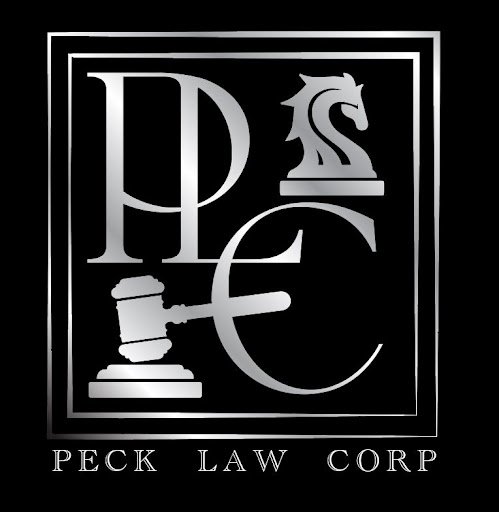Patient Dumping in Nursing Homes: Why It Happens and How to Stop It
When families place a loved one in a nursing home, they expect safety, stability, and compassionate care. Unfortunately, some facilities engage in a harmful practice known as patient dumping—an improper discharge or transfer of residents that can place vulnerable individuals at serious risk.
This article will explain what is patient dumping, why it happens in nursing homes, the dangers it poses, and the legal protections available under both federal and California law. We will also outline how families can hold facilities accountable and how Peck Law Corporation can help victims of patient dumping fight back for justice.
What Is Patient Dumping?
Patient dumping occurs when a hospital or nursing home discharges, evicts, or transfers a patient without ensuring proper care or placement. This often happens without notice to the resident or family and without a safe and appropriate plan for continuing treatment.
For example, a nursing home might abruptly send a resident to a hospital emergency room and then refuse to take them back, leaving the family scrambling to find care. In other cases, residents are discharged with little warning, placed in unsafe living conditions, or even left homeless.
While patient dumping is not only unethical—it is also illegal. Unfortunately, it continues to happen, particularly in nursing homes where financial pressures and staffing shortages often drive decision-making.
How Patient Dumping Happens in Nursing Homes
In nursing homes, patient dumping often arises in the following ways:
• Refusing Readmission: A resident is sent to the hospital for treatment, but when the hospital attempts to return the patient, the nursing home declines to accept them back.
• Improper Discharges: Facilities discharge residents who require complex care because they are viewed as too costly or “difficult.”
• Evictions for Nonpayment: Nursing homes may use alleged nonpayment as a reason to evict, even when residents are covered by Medicare or Medi-Cal.
• Discrimination: Certain residents—such as those with dementia, behavioral issues, or limited family support—are disproportionately targeted.
These actions often violate both state and federal regulations, yet many families do not realize they have legal recourse until it’s too late.
The Risks of Patient Dumping for Residents
The consequences of patient dumping are severe, especially for elderly or medically fragile residents. Common risks include:
• Medical Complications: Without proper placement, residents may miss medications, therapy, or necessary monitoring, leading to worsening health conditions.
• Emotional Trauma: Abrupt discharges can cause confusion, fear, and psychological distress, particularly for those with cognitive impairments like Alzheimer’s disease.
• Homelessness: In extreme cases, residents have been left at shelters, motels, or even on the street.
• Wrongful Death: When residents are denied necessary care, the results can be fatal.
These outcomes underscore why patient dumping is such a serious violation of residents’ rights and why strict laws exist to protect them.
Legal Protections Against Patient Dumping
Families may wonder: If this happens, what can we do? The good news is that several laws safeguard nursing home residents against unlawful discharge or abandonment.
Federal Protections: EMTALA
The Emergency Medical Treatment and Labor Act (EMTALA) requires hospitals to provide emergency medical care to any patient, regardless of ability to pay. While EMTALA primarily applies to hospitals, it also prevents nursing homes from abandoning residents in emergency departments without a safe discharge plan.
Federal Nursing Home Reform Act
The Nursing Home Reform Act (part of the Omnibus Budget Reconciliation Act of 1987) provides that residents may only be discharged under limited circumstances, such as for medical reasons or nonpayment. Even then, nursing homes must provide advance written notice, proper documentation, and a safe transfer plan.
California-Specific Protections
California has some of the strongest safeguards in the country. State law requires nursing homes to obtain approval from the Department of Health Care Services before transferring or discharging Medi-Cal residents. Facilities must also provide a 30-day written notice for most discharges, unless an emergency makes immediate transfer necessary.
In short: nursing homes cannot simply “dump” residents because it is convenient or financially advantageous.
Holding Nursing Homes Accountable
When a nursing home engages in patient dumping, families have legal options. Accountability can take several forms:
• Administrative Complaints: Families can file complaints with the California Department of Public Health (CDPH), which oversees nursing homes and can investigate violations.
• Civil Lawsuits: Victims may sue nursing homes for damages, including medical costs, emotional distress, or wrongful death.
• Regulatory Penalties: Facilities found guilty of unlawful discharges may face fines, sanctions, or even loss of licensure.
These legal tools are designed not only to secure justice for individual families but also to deter facilities from repeating abusive practices.
How Peck Law Corporation Can Help
At Peck Law Corporation in Simi Valley, we understand the devastating impact of patient dumping on residents and their families. With decades of experience in elder law, nursing home abuse, and residents’ rights litigation, our attorneys are uniquely equipped to fight these battles.
Our team approaches every case with compassion for victims and determination to hold negligent facilities accountable. We fight for justice, financial compensation, and, most importantly, the dignity of those affected by patient dumping.
Contact Peck Law Corporation Today for Legal Guidance
If you or a loved one has experienced patient dumping, you do not have to face this fight alone. These practices are unlawful, and you have rights under both federal and California law.
Peck Law Corporation is here to protect those rights. Our team will carefully review your case, explain your options, and pursue every legal avenue available to ensure accountability and justice.
Contact Peck Law Corporation today for a free consultation. Together, we can stop patient dumping and protect the dignity and safety of nursing home residents.
FAQs
-
No, patient dumping is illegal under both federal and state laws. Regulations such as the Nursing Home Reform Act and California health codes specifically protect residents from unsafe or involuntary discharges.
-
California law provides strong safeguards, requiring most nursing home discharges to be approved by state regulators and supported by a safe transfer plan. Facilities must also give a 30-day written notice unless an emergency makes immediate transfer necessary.
-
Yes, families can pursue civil lawsuits against nursing homes that engage in patient dumping. Claims may seek compensation for medical costs, pain and suffering, emotional distress, and wrongful death.
-
Document everything, including discharge notices, medical records, and communication with the facility. Then, contact an attorney experienced in nursing home law to explore your legal options.



